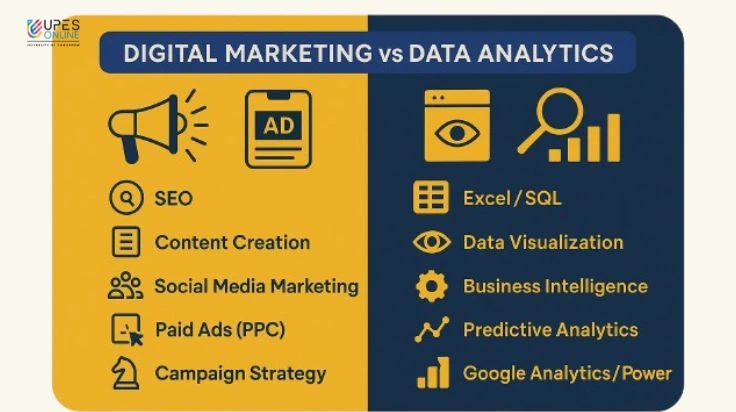Types of Startups, Business Models and Funding

In the dynamic world of entrepreneurship, each startup comes with its unique characteristics, goals, and challenges. Understanding the different types of startups is crucial for aspiring entrepreneurs, investors, and stakeholders alike. In this comprehensive guide, we will explore the diverse landscape of startups, including their categories, ideas, funding options, and investor profiles.
Classification of Startups
Startups can be classified based on various criteria, including their industry focus, business model, stage of development, and target market. Let's dissect some common classifications:
1. Industry Focus
A. Tech Startups
These startups are leading the charge in technological innovation, harnessing advancements in software, hardware, or a combination of both. Indian examples include Ola, OYO, and Flipkart, which have transformed transportation, hospitality, and e-commerce.
B. Biotech Startups
Pioneering breakthroughs in healthcare, pharmaceuticals, and biotechnology, Indian biotech startups like Biocon and Bharat Biotech are making significant strides in areas such as vaccine development, drug discovery, and genetic engineering.
C. Fintech Startups
Transforming the financial landscape through technology-driven solutions, Indian fintech startups such as Paytm, PhonePe, and Razorpay are revolutionizing digital payments, lending, and banking services, catering to the diverse needs of India's rapidly growing economy.
D. E-commerce Startups
Redefining retail paradigms with their online presence, Indian e-commerce startups like Flipkart, Amazon India, and Snapdeal have reshaped consumer behaviour and preferences, offering a wide array of products and services through digital platforms.
E. Food and Beverage Startups
Spearheading innovation in the culinary landscape, Indian startups like Zomato, Swiggy, and BigBasket are revolutionizing food delivery, grocery shopping, and restaurant discovery, catering to the evolving tastes and preferences of consumers across the nation.
F. Services Startups
Offering a plethora of on-demand services, Indian startups such as Urban Company, Dunzo, and Practo are streamlining tasks ranging from home maintenance and delivery to healthcare services, enhancing convenience and efficiency for users.
G. Education Startups
Innovating in the realm of learning and skill development, Indian startups like Unacademy, UPES Online and Vedantu are revolutionizing education delivery through online platforms, offering personalized learning experiences and access to quality educational resources to students across the country.

2. Business Model
A. Subscription-based Startups
Embracing the Indian market's growing demand for convenience and affordability, subscription-based startups are rapidly gaining traction. Companies like Gaana, Dunzo, and Bombay Shaving Company have tapped into this model, offering music streaming, delivery services, and grooming products on a subscription basis. By providing customers with a hassle-free and cost-effective way to access their desired products or services, these startups ensure steady recurring revenue streams.
B. Marketplace Startups
In India's bustling digital ecosystem, marketplace startups are revolutionizing how buyers and sellers connect and transact. Platforms such as Flipkart, OLX, and MakeMyTrip have transformed various industries, from e-commerce to travel and classifieds. By providing a centralized hub for transactions, these startups offer unparalleled convenience and choice to Indian consumers, fostering a dynamic marketplace economy.
C. On-demand Startups
With the rapid proliferation of smartphones and internet connectivity, on-demand startups are reshaping the way Indians access goods and services. Swiggy, Zomato, and UrbanClap exemplify this trend, offering seamless solutions for food delivery, home services, and more at the tap of a button. By leveraging technology to fulfill immediate needs, these startups have become indispensable parts of everyday life for millions of Indians, driving unprecedented convenience and efficiency.
D. Freemium Startups
These innovative ventures offer basic services for free while enticing users with premium features or content available through subscription. Indian startups like Zomato and Practo have successfully adopted this model, providing essential services to users while monetizing through premium offerings.
E. Advertising-based Startups
Leveraging advertisements as a primary source of revenue, these startups offer free access to their platforms while generating income through targeted advertising. Indian startups such as InMobi and Dailyhunt have capitalized on this model, providing content and services while displaying relevant advertisements to users.
F. Transaction-based Startups
Operating on a pay-per-use or commission basis, these startups facilitate transactions between users or businesses, charging a fee for each successful transaction. Indian startups like Paytm and Razorpay have disrupted the financial sector by offering seamless payment solutions and earning revenue through transaction fees.
Types of Funding
A. Bootstrapping:
Bootstrapping is a common approach among Indian startups, where founders rely on personal savings, early revenue, or even credit cards to fund their ventures. By avoiding external investments, entrepreneurs retain full control over their startups and can steer their growth according to their vision. However, bootstrapping can also pose challenges such as limited resources and higher personal financial risks.
B. Angel Investment:
Angel investment plays a vital role in the Indian startup ecosystem, with affluent individuals providing crucial capital to early-stage ventures in exchange for equity. Beyond financial support, angel investors often offer mentorship, guidance, and valuable industry connections to help startups navigate challenges and accelerate growth. Their contributions are particularly beneficial for budding entrepreneurs seeking initial funding and strategic guidance.
C. Venture Capital:
Venture capital firms are prominent players in the Indian startup landscape, injecting institutional funds into high-potential ventures in exchange for equity. These investments typically occur in stages, with each round (Seed round, Series A, B, C, etc.) fueling the startup's growth trajectory. Venture capitalists bring not only capital but also expertise, networks, and experience to help startups scale rapidly and capture significant market opportunities.
D. Crowdfunding:
Crowdfunding has emerged as an alternative funding avenue for Indian startups, allowing them to raise capital from a broad base of individual investors via online platforms. Whether through rewards-based, equity-based, or debt-based campaigns, crowdfunding enables startups to validate their ideas, engage with early adopters, and secure funding without traditional institutional backing. This approach democratizes investment opportunities and empowers entrepreneurs to access capital while building community support for their ventures.

Types of Investors for Startups
In the vibrant landscape of Indian startups, a diverse array of investors actively participate, fuelling innovation and growth. Let's delve into the various types of investors shaping the startup ecosystem:
A. Institutional Investors
In India, institutional investors such as large banks, insurance companies, and government-backed funds are significant players. They allocate substantial capital to venture capital firms or directly invest in promising startups. These investors not only provide financial backing but also lend credibility, bolstering the confidence of other stakeholders in the startup.
B. Corporate Investors
Corporate giants in India are increasingly turning to startups for strategic partnerships and innovation. Companies like Tata, Reliance, and Infosys have ventured into corporate venture capital, investing in startups to access cutting-edge technologies and tap into emerging markets. These investments not only benefit startups financially but also offer valuable industry insights and potential collaboration opportunities.
C. Accelerators and Incubators
India boasts a thriving ecosystem of accelerators and incubators, nurturing startups from their inception to scaling stages. Entities like Indian Angel Network, Axilor Ventures, and IIM Ahmedabad's CIIE Catalyst for instance, provide startups with mentorship, resources, and often seed funding in exchange for equity. These programs play a crucial role in accelerating the growth of early-stage startups, fostering innovation, and facilitating connections within the ecosystem.
D. Individual Investors
Individual investors, including seasoned entrepreneurs, executives, and professionals, form a vital part of the Indian startup investment landscape. These angel investors bring not only capital but also invaluable industry experience, mentorship, and networking opportunities to the table. Renowned figures like Ratan Tata and Sachin Bansal are actively involved in backing promising startups, leveraging their expertise and networks to catalyze success.
E. Family Offices
Family offices manage the wealth of affluent families and high-net-worth individuals. Some family offices allocate a portion of their capital to venture investments, either directly or through funds, seeking opportunities for high returns and diversification.
F. Government Funds and Grants
Government initiatives, such as startup funds and grants, aim to foster entrepreneurship and innovation. These funds provide financial support to startups, often with specific criteria or objectives tied to economic development or societal impact.
Social Entrepreneurship Startups in the Indian Market
In the dynamic landscape of Indian startups, social entrepreneurship has emerged as a significant trend, reflecting a growing emphasis on addressing social issues alongside profitability. These startups are characterized by their dual focus on creating positive social impact while generating sustainable financial returns.
One notable example is Goonj, a social enterprise addressing the issue of clothing and basic necessities for the underprivileged by collecting, processing, and distributing surplus urban material to rural areas. Another example is SELCO India, which focuses on providing sustainable energy solutions to rural communities, thereby tackling issues related to energy poverty.
These startups leverage innovative business models and technologies to create scalable solutions for pressing social problems such as poverty, healthcare access, education, and environmental sustainability. They often attract impact investors who seek both financial returns and measurable social impact, contributing to the growth of the social entrepreneurship ecosystem in India.
Emerging Trends in the Indian Startup Market:
The Indian startup ecosystem continues to evolve, driven by emerging trends that reflect technological advancements and changing consumer preferences. One such trend is the rise of AI-powered startups, which leverage artificial intelligence and machine learning algorithms to develop innovative products and services across various sectors. From personalized healthcare solutions to predictive analytics in finance, AI startups are revolutionizing industries and enhancing efficiency and decision-making processes.
Another significant trend is the emergence of Blockchain-based startups, which are leveraging blockchain technology to create transparent, secure, and decentralized solutions. These startups are disrupting traditional industries such as finance, supply chain management, and healthcare by offering solutions like decentralized finance (DeFi), supply chain traceability, and secure digital identities.
Additionally, startups in sectors such as AgriTech, EdTech, and HealthTech are witnessing rapid growth, fuelled by factors such as increasing smartphone penetration, digital literacy, and government initiatives promoting entrepreneurship and innovation. These startups are leveraging technology to address specific challenges within their respective sectors, driving innovation and growth in the Indian startup ecosystem.
In conclusion, the exploration of startup diversity reveals a vibrant landscape teeming with innovation and potential. From tech pioneers to social entrepreneurs, each venture contributes uniquely to India's dynamic startup ecosystem. Understanding the nuances of classification, funding, and investor profiles illuminates pathways for aspiring entrepreneurs and stakeholders alike, shaping the future of entrepreneurship in India. As emerging trends continue to redefine the landscape, embracing diversity and harnessing innovation will be key to navigating the ever-evolving terrain of startup ventures.
FAQs Related to Startups
Which type of startups are more profitable?
Business-to-business (B2B) startups are often some of the most successful in terms of generating revenue. This is because they typically cater to other businesses, which tend to have more disposable income than consumers. Additionally, B2B startups often have recurring revenue streams, which can be extremely valuable.
What are the 7 stages of startups?
The 7 stages of a start-up are;
- Ideation: Founders brainstorm and research to generate product or service ideas.
- Minimum Viable Product (MVP): Develop a basic version to gather feedback quickly.
- Investment: Secure funding from investors to support growth.
- Product-Market Fit (PMF): Refine offerings based on customer feedback to meet market needs.
- Go-to-Market: Scale the business and reach a wider audience through marketing strategies.
- Growth: Rapidly scale business through various strategies like partnerships and acquisitions.
- Maturity: Established as a successful and sustainable business, focus on optimization and exploring new opportunities.
What are the 4 elements of startup?
- Product: Simplicity, conciseness, and honesty are essential in a product. Solutions addressing specific problems or simplifying tasks are more effective than vague promises lacking necessary backing.
- Market: Understanding and catering to the market is crucial for success. Proof of demand, whether through preorders or post-launch sales, is vital. Gathering this data early ensures alignment with market needs.
- Money: Financial considerations are paramount in starting a business. Insufficient funds can hinder success, as many startups fail due to underestimated costs and time to market. Adequate funding is essential for sustaining operations during the startup phase.
- People: People are the cornerstone of any successful business. Dedicated employees who persevere through challenges and remain loyal contribute significantly to an organization's success. Cultivating a team with unwavering commitment and curiosity drives innovation and resilience.
UPES Online Admission Enquiry
Recommended Courses




Latest Blogs

Digital Marketing vs Data Analytics: Which Career Should You Choose?
Battle of skills: Digital Marketing vs Data Analytics—compare 2025 salaries, skills & job roles. Expert tips to choose your future career path!
Read MoreJun 15, 2025 I 12 mins
Why Should I Choose UPES Online? 10 Reasons Why
Explore why UPES Online stands out in online education. Learn about flexible learning, UGC-approved degrees, expert faculty & credible online programs. Enroll now!
Read MoreAug 21, 2025 I 5 min
Can Distance Learning Fully Replace Traditional MBA Education? Challenges & Limitations
Find out if distance learning can truly replace a traditional MBA. Learn key challenges, limitations, expert opinion & insights.
Read MoreSep 2, 2025 I 4 mins
Online MBA Capstone Projects and the Importance They Hold
Know the importance of online MBA capstone projects. Learn how they build real-world skills, boost career opportunities, & add industry value.
Read MoreSep 7, 2025 I 5 mins
UPES Online MBA vs Other Top Universities: Why Students Prefer UPES
Compare UPES Online MBA with other top universities. Know why students prefer UPES online over others. Check fee, flexibility, faculty, ROI, & career scope.
Read MoreOct 1, 2025 I 7 mins








